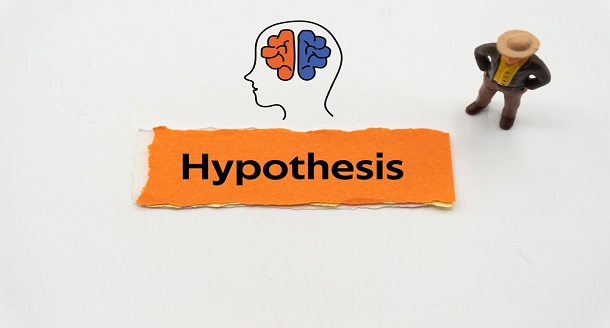
In a research study, the variables that are tested are called dependent or independent variables. They are factors that are expected to change as a result of the experiment. They are also called presupposed causes or effects. When a research study is conducted to find out a new theory, the hypothesis will state the cause or effect of a variable.
Conceptual variables in the research hypothesis
Conceptual variables are variables that a researcher includes in the research hypothesis, but they do not have to be quantitative. Using different conceptualizations of variables can help you make inferences about the study subject. For example, a track coach might use a combination of 200-meter and 400-meter record times to measure the overall athleticism of a team. The coach may also use the individual times of individual runners, which may be measured in minutes. Similarly, a weight lifting coach might use a combination of personal best records and body weight in pounds.
To use conceptual variables in a research study, it is important to first define what each of them means. Then, you should select the measures to measure each one. In general, conceptual variables are less specific than operational variables. However, more specific definitions minimize the risk of misinterpretation of data, and they facilitate replication of research.
Conceptual variables are abstract constructs that can take on a variety of qualitative and quantitative values. These variables can be continuous or discrete. A continuous variable is an abstract concept that has a range of numerical values that can be represented with different decimal points. Conversely, a discrete variable is a piece of information that can only be represented as an integer value.
Tool for the validity of a research hypothesis
Conceptual variables can be a very useful tool for evaluating the validity of a research hypothesis. How to write hypothesis. One of the most common ways to measure these variables is by conducting a survey. For example, a psychologist may want to evaluate the level of depression in an individual. In this case, the psychologist will use a self-reported survey.
Operational variables
In a research hypothesis, operational variables are used to measure specific aspects of a concept. They differ from conceptual variables, which are abstract concepts such as the size of a business or the number of employees. For example, if you are investigating the effects of social anxiety on self-ratings, an experimental intervention may help reduce social anxiety, but not the behaviour of avoiding crowded places. Likewise, different operational definitions of abstract concepts can measure different aspects, so it is important to be precise about what you are measuring.
Using operational variables in your research hypothesis helps you understand your study subject in a deeper way. First, you must define what constitutes an operational variable. This can be done in many ways. Once you have defined the variable, you can incorporate it into your research hypothesis. You should always include it in the null hypothesis as well.
In addition to defining the operational variable, you must also define the corresponding variables. For example, in a food study, you might define hunger as the quantity of food consumed. In another study, you might define chocolate cake as its properties. Using operational variables in your research hypothesis makes your research methodology more understandable. Additionally, it helps you to limit your statements to things that are directly observable. This will reduce confusion and the initial struggle.
Operational variables in demographic research
Operational variables are also important in demographic research. If you’re interested in determining the relationship between hot weather and violent crime, you’ll need to operationalize these variables before you can analyze the data. If you don’t operationalize the variables correctly, the results of your study will be inaccurate or unreliable.
Null hypothesis
The null hypothesis will differ from research hypothesis in a certain variable. For example, if a student receives a lower math exam score than his or her classmate’s, his or her score will not differ from the class mean. In contrast, the alternative hypothesis states that the student’s math exam score will differ from the class mean.
One common mistake about the P-value is to think it represents the probability that the null hypothesis is true. A p-value of.02 means that there is only a 2% chance that the result was due to chance. However, this value is not the same as the strength of the relationship. Hence, you should consider practical and statistical significance before making a decision.
When deciding whether to use the null hypothesis, you should first choose a question that you can prove. This question should be as simple as possible to allow the researcher to make an educated decision about the results of the study. The null hypothesis should be based on a specific assumption. For example, age does not affect math ability, and aspirin does not increase the risk of a heart attack.
scientific research
In scientific research, the null hypothesis is a test for the validity of an alternative hypothesis. The alternative hypothesis asserts a relationship between variables or subpopulations. Depending on the method of data collection, the alternative hypothesis can be either a difference or a relationship between two variables.
Author Bio
Ellie Cross is a research-based content writer, who works for Cognizantt, a globally recognised wordpress development agency uk and Research Prospect, a Tjenester til at skrive afhandlinger og essays. Ellie Cross holds a PhD degree in mass communication. He loves to express his views on a range of issues including education, technology, and more.
